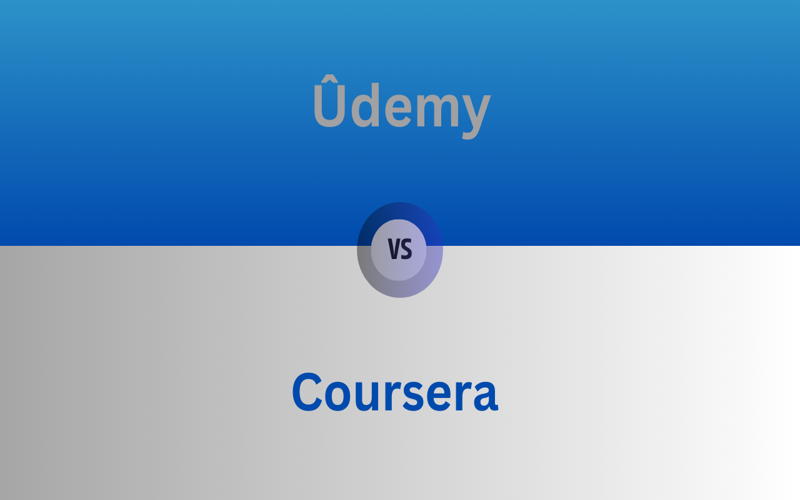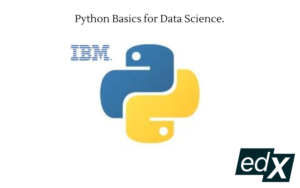When it comes to online learning, the ‘Udemy vs Coursera‘ decision is a common crossroad for many learners. Both platforms have transformed the landscape of education, allowing millions to expand their knowledge and skills through the internet. As we embark on this comparison, we’ll delve into various aspects such as course quality, pricing, user experience, and more to determine which platform might be the best fit for your educational needs. Whether you’re seeking to pick up a new hobby or aiming for career progression, understanding the strengths of Udemy and Coursera is essential in making an informed choice.
Table of Contents
Course Offerings
When comparing Udemy and Coursera, it’s essential to understand their course offerings, as this can greatly influence a learner’s decision. Udemy boasts a vast library with tens of thousands of courses, covering everything from business and technology to personal development and arts. This diversity ensures that almost anyone can find a course that suits their interest or professional development needs.
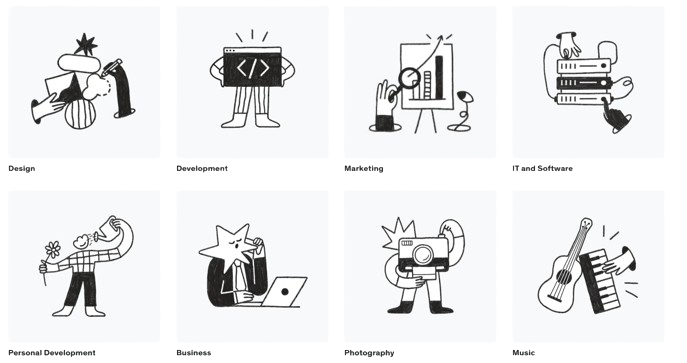
On the other hand, Coursera partners with top universities and organizations to offer a wide range of courses, including many academically rigorous programs. Their offerings are particularly strong in the realms of computer science, business, and data science, and include full degree programs alongside their courses and specializations.


When evaluating Udemy vs Coursera, consider not just the quantity of courses but the depth and potential for advancement they offer. For instance, Coursera provides a pathway from individual courses to full degree programs, which might be highly valuable for those looking to make a significant investment in their education.
Both platforms regularly update their offerings, and the right choice may depend on the specific subject matter you’re interested in. It’s recommended to visit both platforms and explore the current courses that align with your learning goals. Remember, the best platform for you in the ‘Udemy vs Coursera’ debate will depend on your personal learning style, the type of content you’re looking for, and the level of certification you need to achieve your career objectives.
Quality of Content
When debating Udemy vs Coursera, the quality of content is a pivotal factor that can influence a learner’s choice. Udemy’s courses are created by individuals who want to share their knowledge and skills. This can lead to a wide variance in quality, with some courses being incredibly high-quality, while others may not meet professional educational standards. Users are encouraged to read reviews and preview course materials before enrolling.

In contrast, Coursera’s content is typically developed by faculty from renowned institutions and is often subjected to a more rigorous academic standard. This partnership with universities and companies ensures a consistently high level of content quality. Moreover, Coursera’s courses often include peer-reviewed assignments, hands-on projects, and sometimes even live tutoring sessions, which can enhance the learning experience.
It’s important to note that the focus keyword ‘Udemy vs Coursera’ isn’t just about choosing one platform over the other; it’s about understanding which platform’s approach to content quality best suits your learning preferences and educational needs. Whether you value the practical knowledge from industry professionals on Udemy or the academic rigor and structure of Coursera’s offerings could be the deciding factor in your choice.
Pricing and Subscriptions
The pricing models of Udemy and Coursera differ significantly, which is a critical consideration in the ‘Udemy vs Coursera’ comparison. Udemy operates on a per-course fee structure, offering lifetime access to courses after a one-time payment. This can be particularly cost-effective during one of Udemy’s frequent sales, where courses are heavily discounted.

Coursera, however, offers a more complex pricing model. Some courses are available for free (without a certificate), while others are part of Specializations or Professional Certificates that require a subscription fee, offering access to a series of courses over a monthly subscription. For those looking to invest in higher education, Coursera also provides online degrees, which come at a higher cost but also offer accredited diplomas.
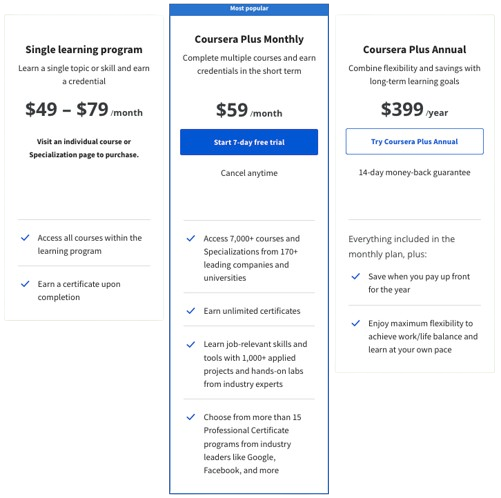
In the debate of ‘Udemy vs Coursera’, your choice might hinge on your budget and commitment level. Udemy’s pay-per-course model is suited for learners looking for a specific skill or who wish to learn at their own pace without a recurring fee. Coursera’s subscription model may appeal more to those who are seeking an extensive learning journey, especially with access to multiple courses within a domain, or those aiming for academic progression with accredited certification or degrees.
Certifications and Accreditation
In the realm of online education, the value of certifications and accreditation cannot be overstated. The ‘Udemy vs Coursera’ comparison brings to light distinct approaches to certification. Udemy provides certificates of completion for most courses, which can be a testament to your commitment to self-improvement and learning new skills. However, it’s important to note that these certificates are not accredited by formal educational institutions.
Coursera, in contrast, offers courses that often include accredited certificates, recognized by employers and educational establishments alike. This is due to Coursera’s partnerships with universities and organizations. For professional or academic advancement, Coursera’s certificates might carry more weight as they can sometimes be part of credit-bearing programs or professional certificates.

When weighing ‘Udemy vs Coursera’ for certifications and accreditation, consider your end goal. If you are looking to gain knowledge for personal development or to enhance your current skill set, Udemy’s certificate might suffice. However, if you need a certificate for professional reasons, to put on your resume, or to contribute to your formal education, Coursera’s accredited options might be more beneficial.
Learning Paths and Specializations
Exploring the ‘Udemy vs Coursera’ dichotomy further, we delve into the learning paths and specializations offered by each platform. Udemy, with its expansive catalog, allows learners to handpick courses that match their interests or career goals, essentially creating their own informal learning path. However, these paths are not officially structured by Udemy and require the learner to navigate their own progression.
Coursera, on the other hand, excels in providing carefully curated Specializations and Professional Certificates that are designed to build expertise in a specific career field. These specializations are a series of related courses that progressively build upon one another to deepen a learner’s skills and knowledge in a particular area.

In considering ‘Udemy vs Coursera’ for learning paths and specializations, it’s important to assess your preference for structured guidance versus self-directed exploration. If you prefer a more academic approach with a clear trajectory, Coursera’s specializations may appeal to you. Conversely, if you enjoy creating your own educational journey and selecting individual courses that pique your interest, Udemy might be your platform of choice.
Job Market Relevance
In today’s rapidly changing job landscape, the relevance of online courses to the job market is a critical consideration. The ‘Udemy vs Coursera’ comparison sheds light on how each platform equips learners with skills that are in demand.
Udemy offers a vast array of courses that cover emerging technologies, business strategies, and creative skills. Its marketplace model allows for quick updates and additions, meaning that courses on the latest trends and tools are frequently available. This makes Udemy a strong contender for those looking to stay ahead in fast-moving fields like tech and digital marketing.
Coursera, with its university partnerships, provides courses designed to offer not just current skills but also foundational knowledge that underpins them. This can be particularly valuable in fields where understanding principles is as important as practical skills. Furthermore, Coursera’s Professional Certificates and degrees have direct links to the job market, with many designed in collaboration with industry leaders.
In assessing ‘Udemy vs Coursera’ for job market relevance, consider your career goals and the type of skills you’re looking to develop. Whether you need to pick up the latest skill quickly or are looking for a comprehensive education that prepares you for a long-term career, your choice between Udemy and Coursera should align with these objectives.
Partnerships with Universities and Companies
One of the key factors distinguishing online learning platforms is their partnerships with universities and companies. These collaborations can significantly enhance the value of the courses offered, making the ‘Udemy vs Coursera’ comparison particularly noteworthy in this regard.
Coursera stands out for its strong partnerships with renowned universities and industry leaders. Coursera partners with more than 275 leading universities and companies. These partnerships allow Coursera to offer a wide range of courses, specializations, professional certificates, and even degrees that are developed and taught by university faculty or company experts. Such collaborations ensure that the curriculum is not only academically rigorous but also industry-relevant, providing learners with skills that are in high demand.
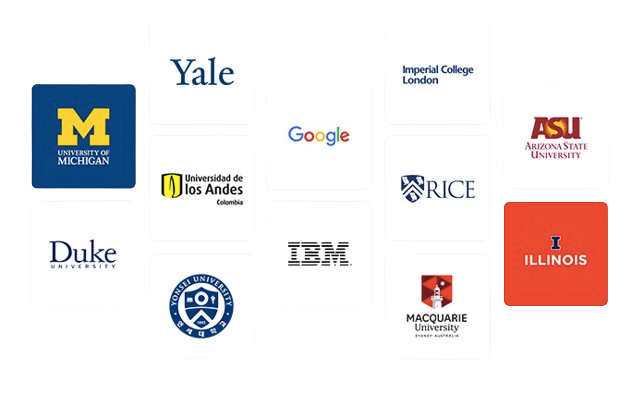
Udemy, while not focused on formal accreditation, has made strides in partnering with organizations and experts to offer courses that meet professional development needs. These courses are often created by individuals with significant industry experience, offering practical, skill-based learning. Though not accredited in the traditional sense, these courses can be invaluable for professional development and lifelong learning.

The decision in the ‘Udemy vs Coursera’ debate may hinge on what you value more: the practical skills and flexibility offered by Udemy’s industry experts or the academic rigor and formal recognition that come with Coursera’s university and company partnerships. Each platform offers unique benefits through its collaborations, whether you’re seeking to advance your career, change fields, or pursue personal interests and hobbies.
Flexibility and Course Completion
Flexibility in learning and the criteria for course completion are essential considerations in the ‘Udemy vs Coursera’ debate. These factors play a significant role in accommodating the varied schedules and commitments of learners, impacting the overall learning experience and success.
Udemy is renowned for its high degree of flexibility. Courses purchased on Udemy come with lifetime access, allowing learners to proceed at their own pace without deadlines. This model is particularly suited for those who have fluctuating schedules, prefer to learn in bursts, or wish to revisit the material long after completing the course. The completion criteria are typically based on video lecture consumption and completing any quizzes or assignments at the learner’s discretion.
Coursera offers structured course schedules with defined start and end dates, mimicking a more traditional academic environment. This structure can include weekly modules, assignments, peer reviews, and sometimes even synchronized sessions. For learners seeking a disciplined approach with a pace that encourages regular progress, Coursera’s model is ideal. Course completion often requires passing grades on assignments and exams, with certificates awarded based on these criteria.
When considering ‘Udemy vs Coursera’ in terms of flexibility and course completion, your learning style, schedule, and goals should guide your choice. Do you thrive in a self-paced environment that allows for learning on your terms, or do you prefer the structure and discipline of a traditional classroom setting? Each platform caters to different needs, offering unique advantages depending on your personal learning preferences.
Community and Support
A strong community and support system are vital for an enriching learning experience, especially in online education. The ‘Udemy vs Coursera’ discussion encompasses these elements as they contribute significantly to learner satisfaction and course completion rates.
Udemy provides a Q&A section within each course where learners can engage with instructors and fellow students. This can be a quick way to get answers to specific questions about course content. Additionally, many instructors offer supplemental resources and feedback to assist learners further.
Coursera’s community approach is more expansive. It boasts discussion forums moderated by teaching assistants or the instructors themselves, fostering a collaborative learning environment. Furthermore, Coursera’s peer-reviewed assignments encourage interaction among students, providing a platform to give and receive feedback, which can be crucial for deeper learning.
When considering ‘Udemy vs Coursera’ for community and support, think about the type of interaction you prefer. If you enjoy self-paced learning with the option to reach out when needed, Udemy’s straightforward Q&A might suffice. If you’re looking for a more immersive experience with academic-style interaction, Coursera’s structured support system may be more appealing.
User Experience
A seamless user experience is crucial when engaging with online courses, and in the ‘Udemy vs Coursera’ debate, both platforms strive to provide an intuitive and learner-friendly interface. Udemy offers a straightforward, no-frills user experience, making it easy for learners to browse and purchase courses. The platform’s course player is simple and effective, with features that allow you to take notes, ask questions, and bookmark content.
Coursera provides a more structured environment that closely resembles the experience of taking an online college course. The platform guides learners through a weekly schedule of lectures, readings, and assignments. For those who appreciate a more traditional academic setting, Coursera’s approach may be more appealing.
Both platforms offer mobile apps, allowing learners to study on the go. The apps are well-designed and sync progress between devices, ensuring that learners can seamlessly switch from desktop to mobile learning.
In the ‘Udemy vs Coursera’ consideration, think about what type of learning experience you prefer. Do you want a self-paced course that you can start and stop at any time, or do you value a structured program that keeps you on track with regular assignments and deadlines? Your preference will play a significant role in determining which platform will better suit your learning style.
Language Availability
Language availability is an essential factor for global learners comparing ‘Udemy vs Coursera.’ Udemy’s courses are created by instructors worldwide, resulting in a diverse linguistic offering. Although English is the most common language on the platform, many courses are available in other languages, and some even offer subtitles.
Coursera, with its academic partnerships, primarily offers courses in English. However, it has been expanding its language offerings, with many courses now available in languages like Spanish, Chinese, and French, often provided with subtitles and sometimes even fully translated.
When considering ‘Udemy vs Coursera’ in terms of language availability, it’s clear that both platforms cater to a global audience but in different capacities. Udemy might be a more suitable choice if you’re looking for content created natively in a language other than English. In contrast, Coursera could be preferable if you’re seeking content from top-tier universities with the option for subtitles or occasional translations.
Accessibility and Inclusivity
Accessibility and inclusivity are crucial benchmarks in the ‘Udemy vs Coursera’ evaluation, as they determine how learners of all abilities can engage with the platforms. Both Udemy and Coursera have made strides to ensure their courses are as inclusive and accessible as possible.
Udemy has implemented features such as closed captioning, and many of its courses are available with subtitles in multiple languages. Their platform also allows for the adjustment of text size and color contrast to better accommodate users with visual impairments.
Coursera also prioritizes accessibility, providing subtitles, and the option to speed up or slow down lecture videos. They adhere to accessibility standards, ensuring that their content is navigable and usable for learners using screen readers and other assistive technologies.
In comparing ‘Udemy vs Coursera’ for accessibility and inclusivity, prospective learners should consider their specific needs and how each platform’s features support those needs. While both platforms are working towards better accessibility, the extent to which this is a deciding factor will depend on individual requirements for an optimal learning experience.
Student Feedback and Success Stories
In evaluating the effectiveness of online learning platforms, student feedback and success stories offer invaluable insights. The ‘Udemy vs Coursera’ comparison is enriched by examining how learners have benefited from their courses, providing prospective students with tangible evidence of what they might achieve.
Udemy’s platform features a robust review system, allowing students to rate courses and leave detailed feedback. This transparency helps prospective learners gauge the quality and relevance of courses based on real user experiences. Success stories on Udemy often highlight personal and professional growth, showcasing how individuals have leveraged new skills to advance in their careers or pursue passions.

Coursera takes a more academic approach, with success stories frequently emphasizing career transitions and advancements. Through testimonials, Coursera highlights how its offerings, especially those leading to degrees or professional certificates, have helped learners achieve significant milestones, such as landing a job in a new field or securing a promotion.

When considering ‘Udemy vs Coursera’ through the lens of student feedback and success stories, it’s crucial to align your goals with the kinds of outcomes each platform is known to support. Whether you’re looking for personal enrichment, skill enhancement, or a career-changing qualification, the experiences of past learners can guide your decision.
Conclusion: The Verdict on Udemy vs Coursera
Deciding between Udemy and Coursera ultimately hinges on your personal learning objectives, preferences, and priorities. If your goal is to acquire specific skills or explore a variety of topics at your own pace, Udemy’s vast library and pay-per-course model offer great flexibility and breadth. It’s a platform that caters to self-starters and lifelong learners who want to pick up new skills or hobbies on a flexible schedule.
Coursera is the go-to for those who prefer a structured learning environment with a pathway to accredited certifications, specializations, and degrees. With its strong partnerships with universities and companies, Coursera is ideal for learners seeking formal education with the intention of career advancement or academic pursuit.
In the ‘Udemy vs Coursera’ debate, there is no one-size-fits-all answer. Both platforms offer unique advantages:
- Udemy excels in offering a diverse array of courses, ease of access, and the opportunity to learn at your own pace.
- Coursera provides academic rigor, structured learning paths, and recognized certification that can make a significant impact on your professional journey.
Choose Udemy if you value course variety, affordability, and the flexibility to learn at your leisure. Opt for Coursera if you are looking for comprehensive courses with a clear progression path, especially if you aim to gain credentials that carry weight in the academic and professional worlds.
Remember, the key to making the most of online learning is to stay committed, engage with the community, and apply what you learn. Whether you choose Udemy or Coursera, both platforms are powerful resources in the pursuit of knowledge and skill development. Your success will depend on how you use these tools to achieve your learning objectives.

